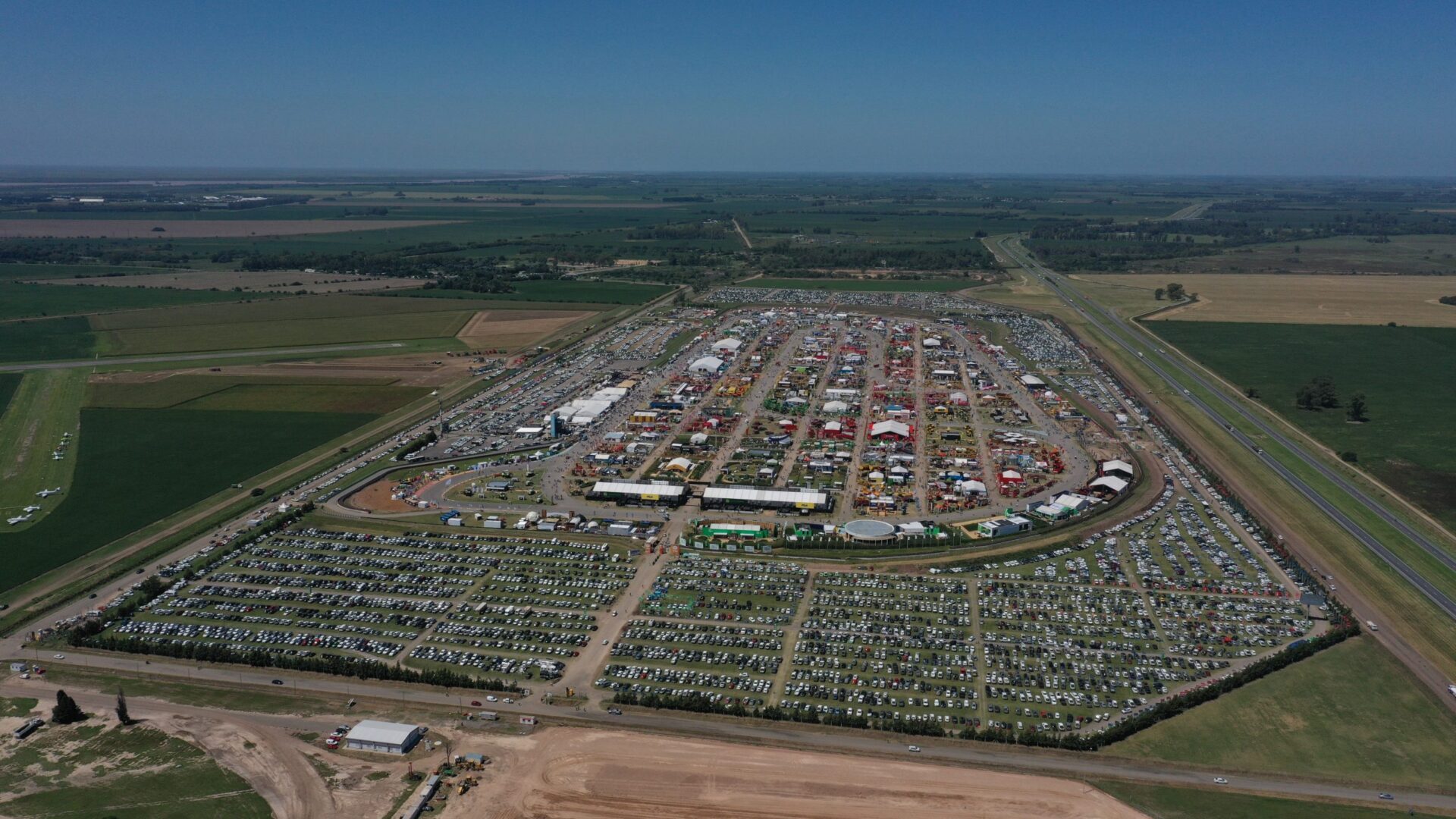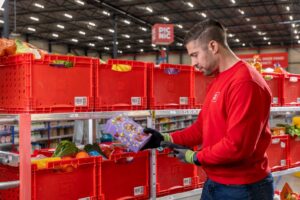Ignacio Rico is a professional based in Argentina and dedicated to expanding agritech and accelerating technology adoption in agriculture across the region. He currently leads business development efforts at Eiwa, and is passionate about connecting cutting-edge solutions with real-world farming challenges.
The views expressed in this article are the authors’ own and do not necessarily represent those of AgFunderNews.
Expoagro 2025 reaffirmed its position as one of Latin America’s most significant agribusiness events, setting new records with 220,000 visitors—a 22% increase from the previous year—and a high level of business activity.
Held in San Nicolás, Argentina, the four-day event not only showcased cutting-edge agricultural innovations but also featured the presence of Argentina’s president, Javier Milei, underscoring his administration’s strong commitment to the sector.
A strong political and economic statement
Milei’s visit to Expoagro—echoing his 2024 appearance and just months before the 2025 parliamentary elections—sent a clear message to the industry.
Speaking at the event, he declared, “The agricultural sector is the engine of Argentina’s economy, and we will continue removing the obstacles that have hindered its growth.”
His administration’s focus on reducing bureaucracy and lowering export taxes while maintaining fiscal balance was well received, with a significant cut of 26% in export taxes at the beginning of the year. Although this measure was welcomed, farmers and agribusiness leaders are calling for its continuation and expansion in the coming years.
Despite the need for further export tax reductions, the government’s commitment to creating a more business-friendly environment was seen as a positive signal. According to Nicolás Pino, president of the Sociedad Rural Argentina (SRA), “The sector is betting on Argentina. This support for the president means we need policies that allow us to produce more and better.”
Investment and business momentum
Despite global commodity price fluctuations, investments in Argentina’s agribusiness sector remain resilient.
This year’s Expoagro saw not only record attendance but also a notable rise in business deals, with major agribusiness firms securing multimillion-dollar agreements in machinery, inputs, and technology, reporting a significant banking activity against previous years.
“It’s been a historic Expoagro, both in attendance and business activity,” said Rodrigo Ramírez, commercial manager of Expoagro to Radio Mitrel. “We’ve seen a sector that, despite challenges, continues to move forward with innovation and investment.”
Argentina’s livestock sector is experiencing one of its strongest years in decades, standing in stark contrast to the low global commodity prices affecting row crops. In 2024, beef exports reached 935,261 metric tons, the highest level in a century, surpassing even the 1924 record of 981,000 tons. This marks a 10% increase from 2023, with nearly 70% of exports destined for China.
While crop farmers struggle with shrinking margins, cattle producers are thriving, benefiting from high global beef prices and positive margins across large parts of the supply chain. This livestock trend is helping offset the economic strain faced by other segments of the agribusiness sector.
AgTech and AI: the future of farming
Expoagro 2025 also highlighted the growing role of agtech and artificial intelligence (AI) in the farming sector. With a record number of booths dedicated to agtech solutions, the event showcased agriculture’s ongoing digital transformation.
Juan Manuel Baruffaldi, CEO of DeepAgro, an AI company for selective spraying, emphasized the sector’s rapid adoption:
“Last year, we had 30 sprayers using our solution in Argentina. This year, we already have 60 operating with our technology, and we placed our first module in the U.S. this week, as well as our second module in Brazil.”
Venture capital investment in Argentina’s agtech sector is gradually rebounding. Mayco Mansilla, from Innventure, an agtech-focused VC backed by 90 farmers and ag leaders, emphasized this shift: “Our portfolio includes 11 startups, and in 2025, we aim to invest in up to 9 more, targeting game-changing solutions across the agrifood value chain. After a challenging 2023-2024, we’re seeing renewed momentum.”
With portfolio companies like DeepAgro, Eiwa, and Elytron already expanding internationally, Innventure positions Argentina as a key hub for globally scalable AgTech innovation.
Global tech companies such as Google and Globant also joined the conversation, offering a broader perspective on AI’s impact across industries and why agriculture cannot afford to lag behind. While younger farmers are already integrating AI tools—many using ChatGPT as a daily assistant—the sector still lacks a disruptive “killer application” that could significantly accelerate AI adoption.
While challenges such as rising costs and fluctuating global commodity prices persist, there is growing optimism that Argentina’s agribusiness sector will continue to adapt and drive economic growth, not only for the country but also for the broader Latin American region.





